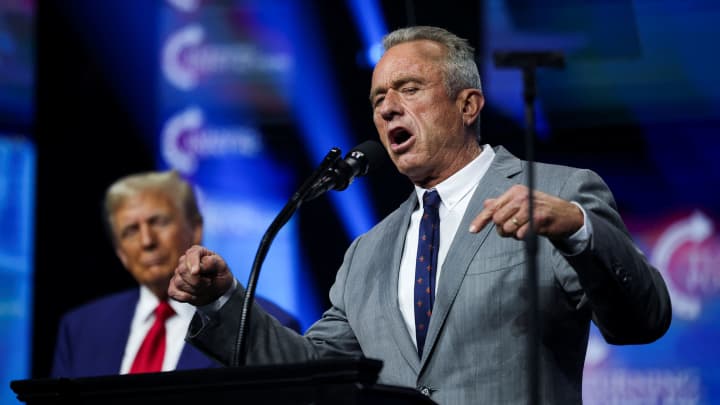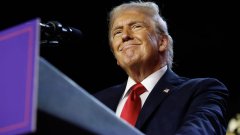
Former president said Sunday that Robert F. Kennedy Jr.'s proposal to remove fluoride from the U.S. water system "sounds okay" to him, a position that runs counter to the advice of public health agencies.
"Well, I haven't talked to him about it yet, but it sounds okay to me. You know it's possible," Trump said in an with NBC News' Dasha Burns, when asked about Kennedy's proposition.
Kennedy on X Saturday, "On January 20, the Trump White House will advise all U.S. water systems to remove fluoride from public water."
Trump also said Kennedy would have a big role in any Trump administration.
Fluoride is naturally occurring in almost all water sources, and some is added to public water to help prevent cavities, according to the Centers for Disease Control and Prevention.
"The safety and benefits of fluoride are well documented and have been reviewed comprehensively by several scientific and public health organizations," reads a on the CDC website.
The American Dental Association that 70 years of research backs up the safety and efficacy of adding fluoride to water, a process known as community water fluoridation.
The Trump campaign did not immediately respond to CNBC's request for comment on the fluoride remark.
Kennedy is also a well known vaccine skeptic, who has helped spread false conspiracy theories about public health. Asked by NBC News whether "banning certain vaccines might be on the table" if Trump were president and Kennedy was in his administration, Trump left the door open.
"Well I'm going to talk to him and talk to other people, and I'll make a decision, but he's a very talented guy and has strong views," said Trump.
The on fluoride and water fluoridation is . But Trump's doubts and the questions they could raise for voters about what public health might look like in a Trump White House underscore a serious challenge for the Trump campaign in its final days: Staying on message.
Last , insult comedian Tony Hinchcliffe called Puerto Rico a "floating island of garbage," which the Trump campaign distanced itself from.
Those comments dominated the news cycle for several days, until President Joe Biden appeared to call Trump supporters " ," before later saying that was not what he meant.
Republicans argue that voters are not paying attention to every controversial statement from Trump and his allies this week, and instead focused on the bigger issues in the race.
"Voters in Michigan and Ohio and Wisconsin and Pennsylvania and Georgia and North Carolina are all talking about crime and unemployment,'" said Sen. Tim Scott, R-S.C., on CNN's "State of the Union" Sunday.
"They're talking about the border. They're talking about 70,000 Americans losing their lives to fentanyl. They're not talking about fluoride."



